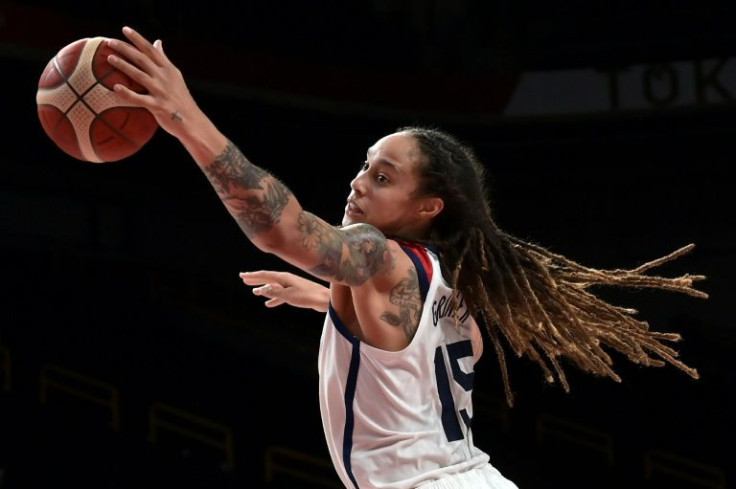Trial Of US Basketball Star Griner Opens In Russia
The trial of US basketball star Brittney Griner, detained in Russia since February, opened on Friday as tensions rage over Moscow's offensive in Ukraine.
Griner, a two-time Olympic gold medallist and WNBA champion, faces up to 10 years in prison on charges of drug smuggling.
Her case has become one of many sticking points in relations between the United States and Russia, with Washington saying the 31-year-old Griner has been "wrongfully detained" and putting its special envoy in charge of hostages on the case.
"The trial has started," Polina Vdovtsova, the spokeswoman for the court in the town of Khimki outside Moscow, told reporters.
The proceedings were partially closed, with a limited media presence, which Vdovtsova said was "on the request of the defence, the request of Griner herself".
The six-foot-nine (2.06 metres) star was brought into court in handcuffs. She wore a white T-shirt with an image of US music icon Jimi Hendrix.
Griner came to Russia in February to play club basketball during the US off-season -- a common path for American stars seeking additional income.
She was detained at a Moscow airport after she was found carrying vape cartridges with cannabis oil in her luggage -- just days before Russian President Vladimir Putin defied US warnings and sent troops into Ukraine.

US authorities initially kept a low profile on the case, which was not made known to the general public until March 5, but has since upped the ante.
"The US embassy and the country cares very deeply about this case," Elisabeth Rood, deputy chief to the US embassy in Moscow, told reporters outside the court.
"She asked me to convey that she is in good spirits and she is keeping up faith."
Griner's lawyer Alexander Boikov said she had "no complaints about the conditions of her detention."
He added that she is working out "in her cell and on walks".
The WNBA has also said it is working to bring Griner home.
But Griner's wife Cherelle told CNN that she feels not enough is being done, despite good intentions.
"I don't think the maximum amount of effort is being done because again, the rhetoric and the actions don't match," she said in an interview, citing the example of a phone call the couple was meant to have that she says was botched by the US Embassy.

"It would have been in her best interest for her phone calls to have been answered. It would be in her best interest for her to be back on US soil. So until I see things like that, no."
Cherelle Griner said she hoped to meet with President Joe Biden to "humanise" her wife and because he has the "power" to bring her home.
The next hearing will take place on July 7.
Russian law is strict in such cases and other foreigners have recently been handed heavy sentences on drug-related charges.
Last month, a Moscow court sentenced a former US diplomat, Marc Fogel, to 14 years in prison for "large-scale" cannabis smuggling.
Russia and the United States regularly clash over the detention of each other's citizens and sometimes exchange them in scenes reminiscent of the Cold War.
In April, former US Marine Trevor Reed, serving a nine-year sentence in Russia for violence, was exchanged for Russian pilot Konstantin Yaroshenko, imprisoned in the United States since 2010 for drug trafficking.
Other exchanges of this type could be the subject of possible talks, observers say.
Among the names most mentioned are Paul Whelan, an American sentenced to 16 years in prison for espionage, and the Russian arms trafficker Viktor Bout, nicknamed "The Merchant of Death", who is serving a 25-year sentence in the United States.
In January 2020, Putin pardoned a young Israeli-American woman, Naama Issachar, imprisoned in Russia for "drug trafficking" after then-Israeli leader Benjamin Netanyahu met with him in Moscow and brought her home.
She was stopped in April 2019 during a transit at Moscow's Sheremetyevo airport while flying between India and Israel via the Russian capital.
After Griner's hearing, US Secretary of State Antony Blinken tweeted: "We -- and I personally -- have no higher priority than bringing her and other wrongfully detained Americans, including Paul Whelan, home.
"We won't stop working until they are reunited with their loved ones."
© Copyright AFP 2024. All rights reserved.







